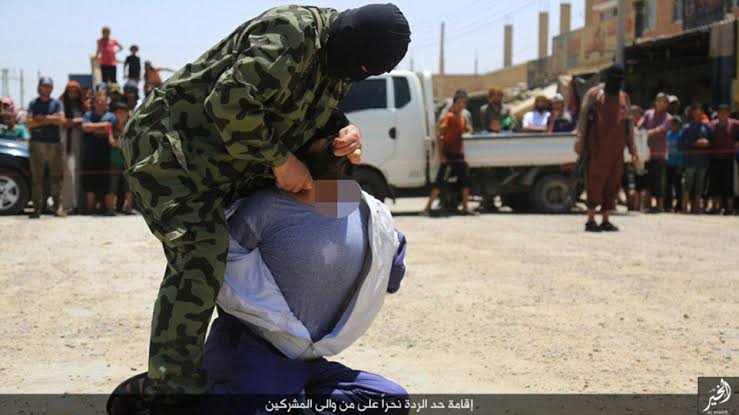
One of six aid workers who was abducted in northeast Nigeria had been killed by an armed group aligned with Islamic State of Iraq and the Levant.
Remember that the Nigerian aid workers, a woman and five men, were captured in July by Islamic State West Africa Province (ISWAP) during an ambush on their convoy close to the border with Niger.
“The armed group holding captive an employee of Action Against Hunger, two drivers and three health ministry personnel, have executed a hostage,” the Paris-based charity said in a statement on Wednesday, without giving details of the identity of the victim.
“Action Against Hunger condemns in the strongest terms this assassination and urgently calls for the release of the hostages.”
The charity said it was “extremely concerned and is fully mobilised to ensure that the remaining hostages can be quickly and safely reunited with their families”.
ISWAP released a video following the abduction, showing a female charity member pleading for the release of the hostages, with her five male colleagues behind her.
The kidnapping was the latest to target aid workers in the conflict-hit region after the abduction and the killing of two women working for the International Committee of the Red Cross last year.
ISWAP is a splinter faction of Boko Haram that swore allegiance in 2016 to ISIL leader Abu Bakr al-Baghdadi. It has repeatedly attacked military bases and targeted aid workers in northeast Nigeria.
Aid group suspends operations
International aid agency Mercy Corps said on Wednesday it suspended operations in two northeast Nigerian states worst-hit by the armed groups after the Nigerian army closed four of its offices in the region.
“Mercy Corps is suspending operations in Borno and Yobe states following the closure of four of our field offices by the Nigerian military,” Amy Fairbairn, its head of media and communications, said in a statement.
“We have not yet received an official reason from the Nigerian authorities for the closure and we are seeking to work with them to resolve this as soon as possible,” said Fairbairn, adding Mercy Corps work in other parts of Nigeria would continue.
The Nigerian army has accused humanitarian organisations of working with armed groups.
In December 2018, it suspended UNICEF from operating in the northeast over claims it was training “spies” who were supporting Boko Haram – only to lift the ban later the same day after a meeting with the aid agency.
Northeast Nigeria has been ravaged by a decade-long civil war led by the armed group Boko Haram that has killed 30,000 people and forced two million to flee their homes.
The United Nations says 7.1 million people in the region need assistance in one of the worlds worst humanitarian crises.
